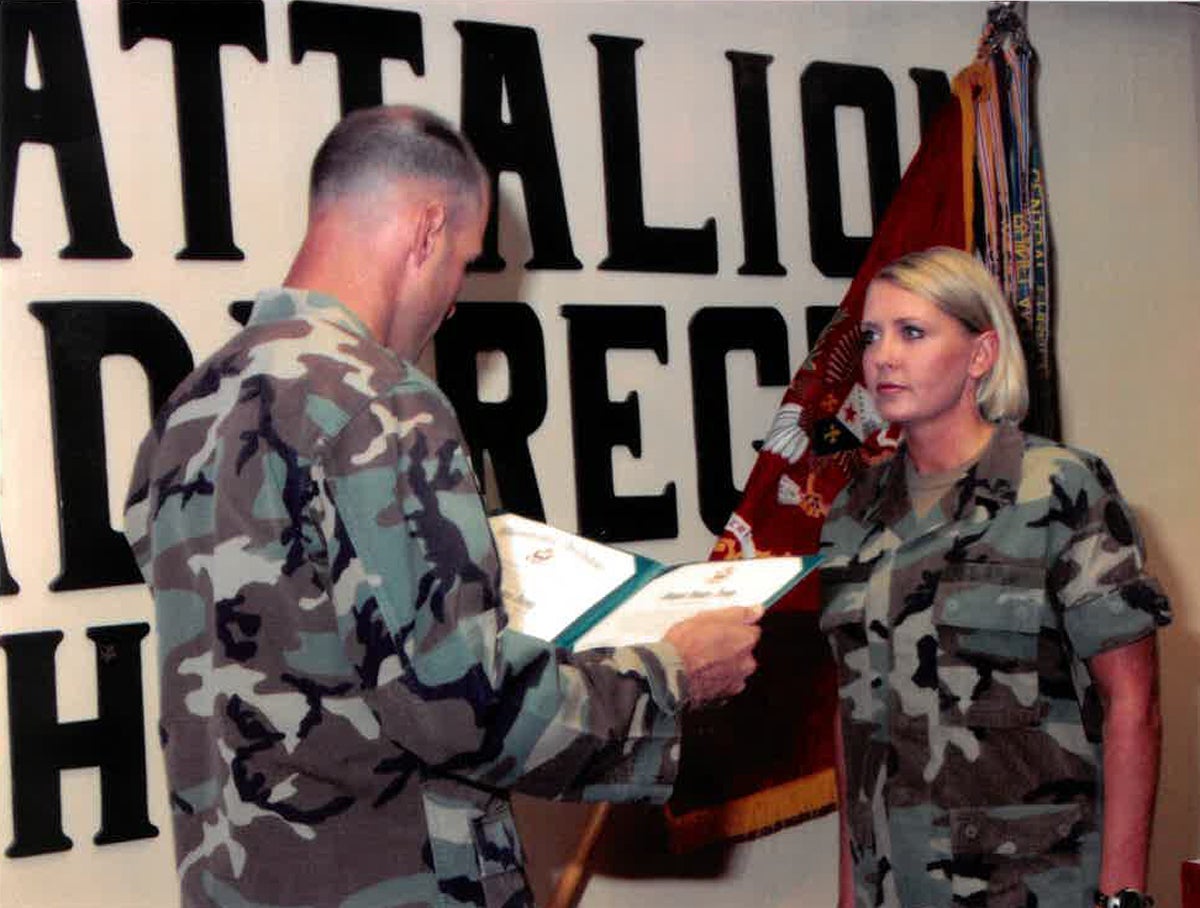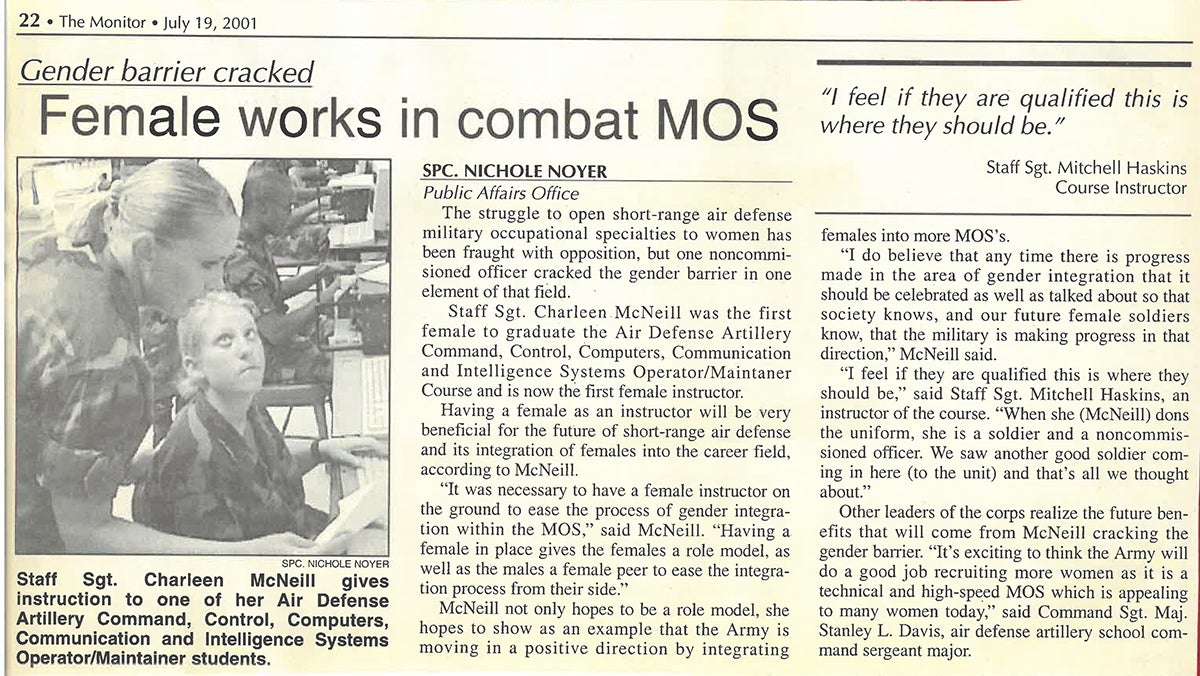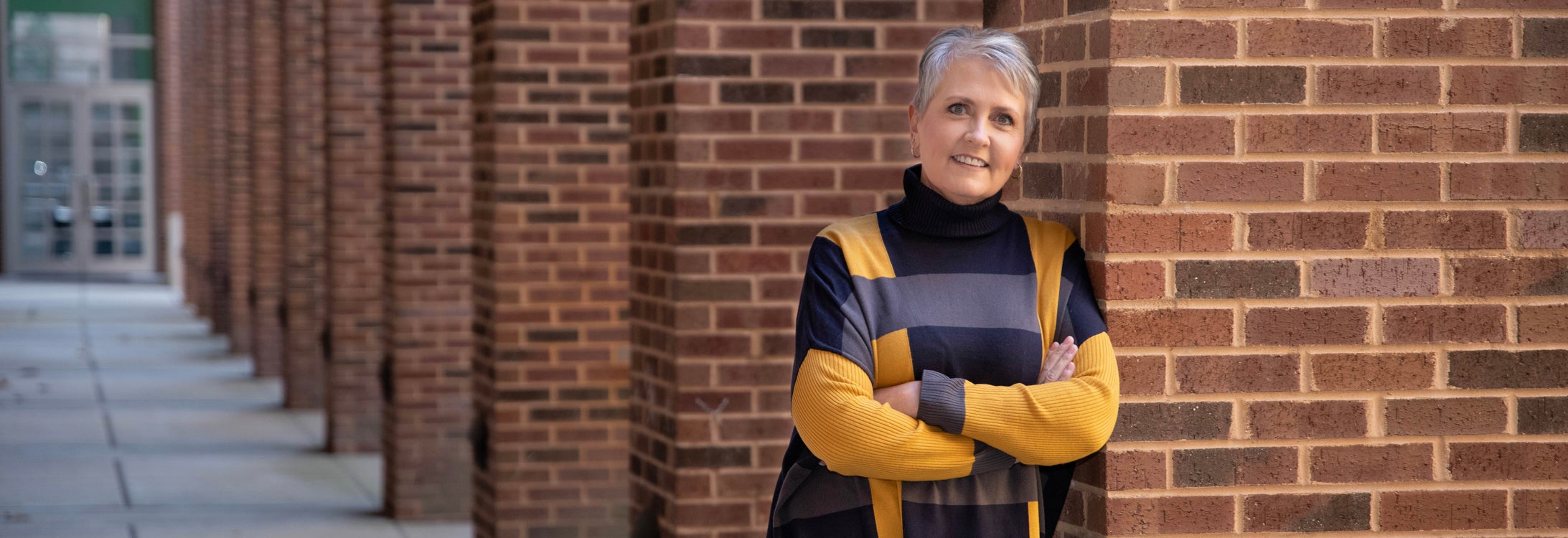BREAKING BARRIERS
ECU Nursing faculty member was first female in combat arms military occupational specialty
When Dr. Charleen McNeill was offered a chance to make history, and to pave the way for the female soldiers that would follow her, she didn’t hesitate. The position she was offered didn’t especially interest her, but the chance to make progress toward women’s equality in the military did.
So McNeill — then a staff sergeant in the U.S. Army, now a faculty member at the ECU College of Nursing — accepted an invitation to become the first female in a combat arms military occupational specialty (MOS) in 1999. She entered the Air Defense Artillery Command, Control, Computers, Communication and Intelligence Systems Operator/Maintainer course, an MOS referred to as 14J, in Fort Bliss, Texas, as the only female before they fully integrated the program.

Dr. Charleen McNeill, now a faculty member at the ECU College of Nursing became the first female in a combat military occupational specialty in the U.S. Army in 1999. (Contributed photo)
“Part of the reason they wanted me to go early before the other female soldiers were let in is because they wanted a female instructor there on campus to be there for these females as a role model, an example, as someone to keep watch,” she said.
Integration in the specialty meant bringing females to the front lines of battle, miles closer than they’d previously been allowed. Perhaps not surprisingly, many of the males in her unit were not onboard with admitting females to the MOS, which entailed operating the radar on a short-range missile system that identified planes, missiles and other airborne threats from adversaries. Despite moments of passive-aggressive behavior by some of the males in the unit, McNeill continued her training.
McNeill finished the course and became a 14J instructor in 2001, helping to ease the integration process and serve as a role model for the other females entering the MOS. Even though the job itself didn’t have much meaning to her, McNeill said what mattered was that she was doing something to make progress in the fight for women’s equality in the military.
“I didn’t care about being a 14J,” McNeill said. “I loved the idea of breaking that gender barrier and that’s why I did it. I loved making progress.”
A new start
After a couple of years as a 14J instructor, McNeill changed duty stations to an Air Defense Artillery unit at Fort Stewart, Ga. In 2002, with two young children and a husband also in the military, McNeill decided it was the right time to leave the Army and begin a new career.
She went back to school to study nursing, starting with an associate degree from a community college in Georgia, and eventually followed it up with a bachelor’s, a master’s and a doctorate—a new degree with each new duty station her family called home. She now serves as an assistant professor and the assistant director of the College of Nursing’s PhD program.
Choosing nursing as her next career was initially a pragmatic decision, McNeill said.
“I always wanted to go to college,” she said. “I knew ‘OK if I’m a nurse, I know I can get a job wherever my husband goes.’ But I’ve always been a really caring person.
“That gets shoved down, really buried because the message in the military and the culture in the military is one of strength and of power and never to admit your weakness. The thought of caring for other people was really appealing to me. It took me a long time to be separated from the military enough to be that person that I think that I always was.”
In time she said she acclimated to civilian life — and to being in a new field dominated by women, a stark contrast from the career she left behind. But some of the skills that she honed in the military, such as leadership, stuck with her and benefitted her in her nursing career, she said.

Upon completing the Air Defense Artillery Command, Control, Computers, Communication and Intelligence Systems Operator/Maintainer course, McNeill became an instructor, aiding the integration of females into the field. (Contributed photo)
‘Small steps leading to huge benchmarks’
McNeill was recently asked to be the keynote speaker at Fort Bragg’s celebration of Women’s Equality Day. She spoke about accepting the responsibility and the opportunity to be the first female in a combat arms MOS — what it meant at the time, and what it means in the grand scheme of women in the military today. She was quick to point out that her role, in her mind, does not compare with what other women in the military are doing now
“I’m really careful to keep it in perspective: The women in the military now are able to do anything,” she said. “They’re in ranger school, they’re in battleships, they’re pilots, they’re on the front lines, all of that. But back then it was different. … What they’re doing now is so much more than what I did. But if you look at it in terms of its context in time it represented progress for women.”
She told the soldiers at Fort Bragg that her contribution represented a step in the right direction, for her and for others like her:
“We build our collective actions to move our cause forward moment by precious moment, step by forward step, achievement by achievement – big and small – each of us marking our moments in time to demonstrate what progress in that moment looks like in visionary and previously unimaginable ways. All the small steps leading to those huge benchmarks in time, they mean something.”
More Military Stories:
